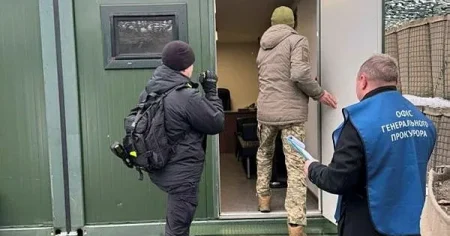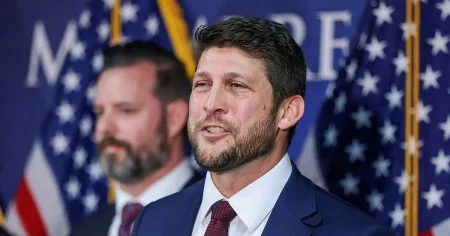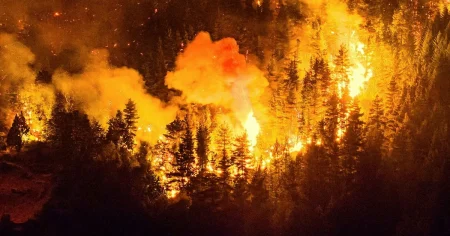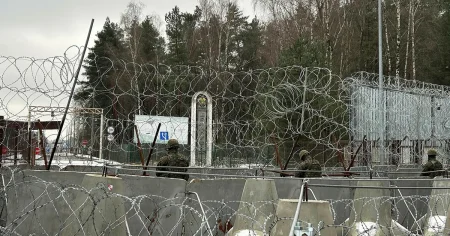The dire humanitarian crisis in Gaza has reached a critical point, particularly for the children trapped in the conflict. Al-Mawasi, a densely populated coastal region in southern Gaza, has become a refuge for many displaced families. However, the living conditions are appalling, with families crammed into makeshift tents constructed from plastic, blankets, or whatever materials are at hand. These flimsy structures offer little protection against the harsh winter elements, leaving children exposed to freezing temperatures, rain, and wind. With winter’s coldest months still ahead, the situation is expected to deteriorate further, raising serious concerns about the health and well-being of the vulnerable population. The lack of adequate shelter, combined with a crumbling infrastructure, poses a significant risk of flooding, exacerbating the already desperate situation.
The repeated displacement of families, many of whom have been forced to flee their homes five to ten times, has stripped them of their belongings, leaving children without warm clothing or shoes. Many are seen wearing summer clothes, barefoot or in flip-flops, ill-equipped to face the biting cold. The children’s despair is palpable, a testament to the unrelenting hardships they endure. Their physical suffering is compounded by the psychological trauma they experience, witnessing death and destruction on a daily basis. The constant threat of violence and the loss of loved ones have left deep scars on their young minds, potentially leading to long-term psychological consequences.
The already fragile health situation is further aggravated by the unsanitary conditions and the lack of access to basic healthcare. Easily preventable diseases like chickenpox and hepatitis are rampant, with hundreds of cases reported. Thousands of children also suffer from various skin ailments, their conditions worsened by the cold weather. Diarrhea is prevalent, hindering the absorption of nutrients from the limited food supplies, including the high-energy bars distributed by UNICEF. The lack of gas for cooking forces families to resort to burning plastic for fuel, resulting in a surge in respiratory infections among children, adding another layer of suffering to their already dire circumstances.
The pervasiveness of death and injury has become a grim reality for even the youngest children in Gaza. A recent report by War Child and the Community Training Centre for Crisis Management (CTCCM) reveals the profound psychological impact of the conflict on children. The constant fear of death, coupled with the loss of family and friends, has left many children feeling hopeless and despairing. A staggering number express a desire to die, a chilling reflection of the psychological toll the conflict has taken on their young minds. The average of four children killed daily since November, and over 14,500 in the last 14 months, underscores the urgent need for intervention to protect these innocent lives.
The psychological trauma inflicted on the children of Gaza is immense. Almost every child has experienced the loss of family members or friends, leaving them with deep emotional scars. Rosalia Bollen, a UNICEF representative, recounts a heartbreaking encounter with a five-year-old boy who lost his sight, suffered a skull injury, and sustained severe burns after his home was bombed. The boy’s poignant words, ”My eyes went to heaven before I did,” encapsulate the profound impact of the conflict on children’s perception of life and death. Such expressions are common among the children, highlighting the urgent need for psychosocial support.
UNICEF estimates that every child in Gaza requires psychosocial support to cope with the trauma they have endured. However, the ongoing conflict, with its constant sounds of drones and fighter jets, hinders their recovery. This constant state of fear and uncertainty has devastating consequences for children’s mental and emotional well-being. The long-term impact of this trauma is a grave concern, with fears that it will leave a lasting mark on an entire generation. The international community must take urgent action to address the humanitarian crisis in Gaza and provide the necessary support to help these children heal and rebuild their lives. Ending the violence and ensuring access to essential services, including psychological support, is crucial for their future and the future of Gaza.














